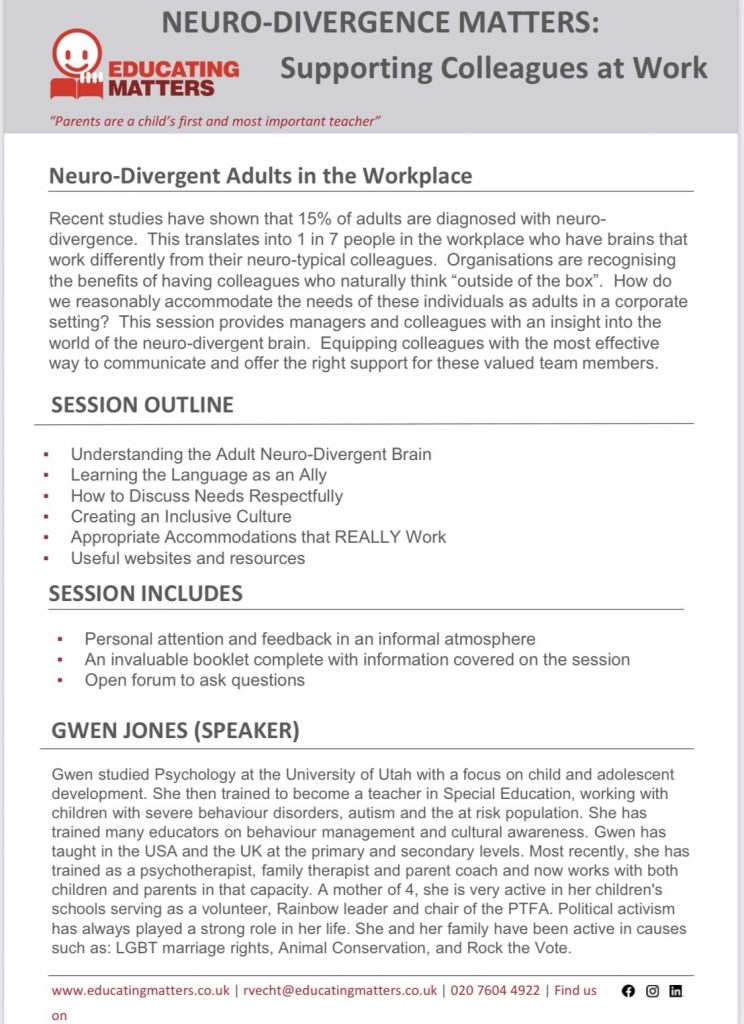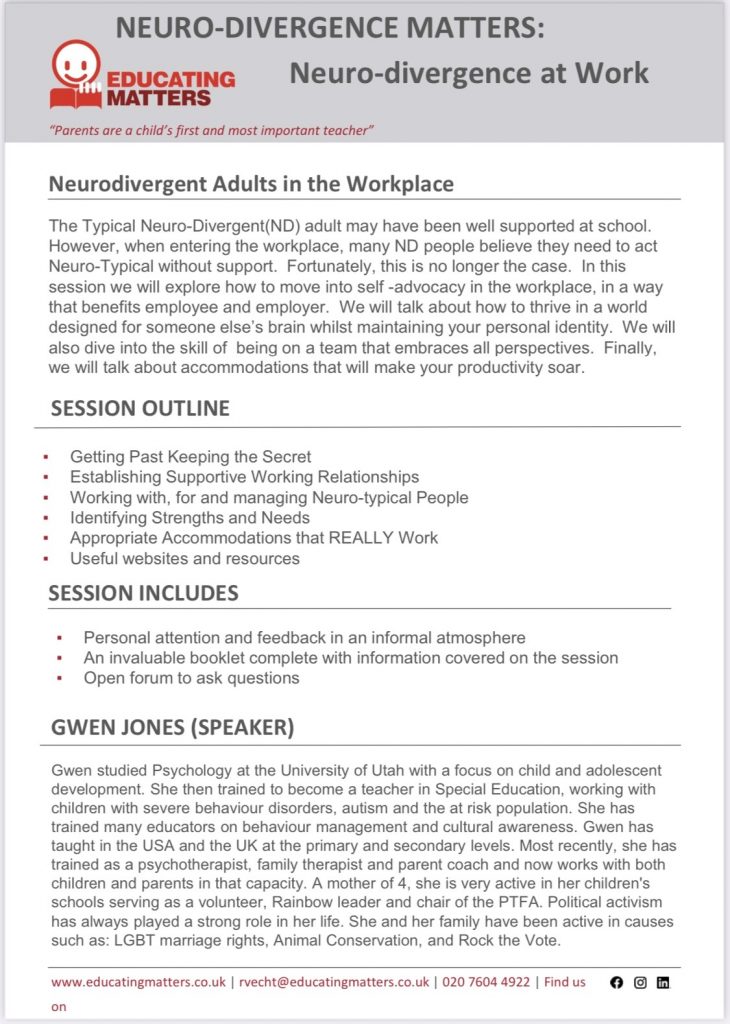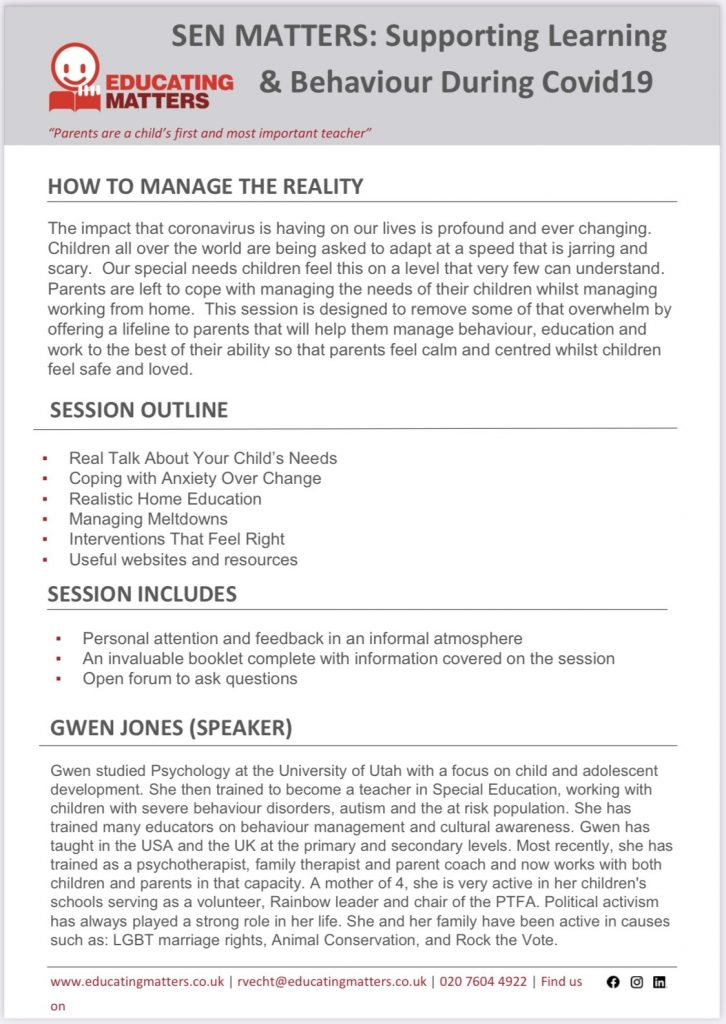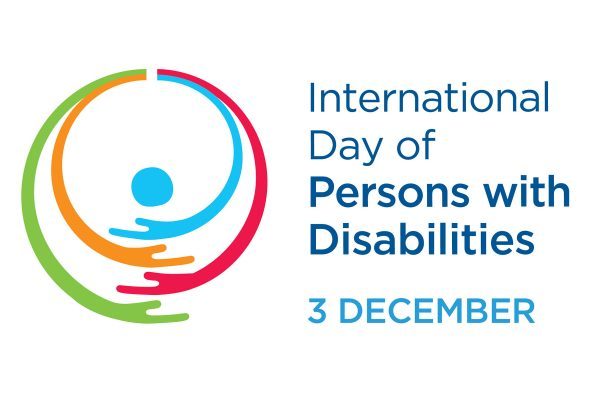Children with neuro-divergence are often well accommodated at school. With the appropriate adaptations to the learning environment, students are able to thrive working within the confines of a neuro-typical world.
Unfortunately, many of these successful individuals go into the corporate world unsupported and struggle to succeed. This could be due to not asking for help out of fear of discrimination or due to a lack of awareness of reasonable accommodations in the workplace. Whatever the reason, this gap in support robs the corporate world from the benefits of having a successful neuro-divergent individual on their team.
The disconnect of support is often due to a lack of information. What does the neuro-divergent brain need? What is practical and reasonable within the workplace? How does the organisation create an environment where needs can be addressed?
Blending what we already know works in schools with the evolved needs and strengths of a neuro-divergent adult will benefit both parties. As an example, let’s look at ADHD. 3-5% of people in the UK have been diagnosed with ADHD. Simple support returns incredible results for employees and employers. Here are some top tips to get things started.
Talk Less, Engage More
The obvious area that needs to be supported around ADHD is to do with attention. It is a misconception that this means a lack of attention. The truth is that there is an overabundance of attention. Teachers have mastered the art of giving key information and limiting the exposition. The reason is that when the ADHD brain receives information, it immediately starts making connections in ways the neuro-typical brain does not. Managers and colleagues who give the highlights, then check for understanding will benefit from natural ‘outside-of-the-box’ thinking that happens when the brain is given space to thrive.
Assistive Technology Saves Projects’ Lives
In school, children with neuro-divergence are taught to rely on assistive technology to communicate information in a neuro-typical way. It only makes sense to bring this into the professional world. Spell check, voice to text, organisational software and more are tools specifically designed with the neuro-divergent brain in mind. Many neuro-typical people have benefitted from them as well. Becoming aware of and providing the most effective, research-based assistive technology will assist the brain that appears chaotic, to organise time and information to drive project success and keep to tight deadlines.
Notes Are Not Just for Music
One of the most common accommodations in schools for older students involves note taking. Teachers provide copies of PowerPoints and notes before the class starts for review. Some students have note taking buddies in class who provide a copy of well-structured notes. Some classes are recorded for review later. These interventions are simple, easy and effective. They can also be easily translated into the work setting. Small details are no longer missed. More of the brain is engaged. Time and money are saved whilst a team member feels supported and valued.
This Space Creates Success
In school, students do not bat an eye lid when they see their fellow students’ needs met in unique ways. School is a space where everyone is given the chance to succeed. Surely, the professional space should be as well. Organisations who do not hide from supporting the needs of their team members create a culture that is inclusive, accepting and even champions those who are diverse. When everyone feels supported, retention is high and employee engagement soars.
Educating Matters believe that education does not end at school. It is a lifelong process for individuals and organisations that, when properly supported, is the key to innovation, better mental health and success. Blending the knowledge and experience between the worlds of education and professionalism is the way forward, for the success of businesses and the individuals who make them prosper.
We have a wealth of resources and can tailor make sessions to:
- Support the needs of neuro-divergent employees
- Increase understanding for colleagues who are neuro-typical
- Support parents of neuro-divergent children.
Here are a few sample webinar outlines:




